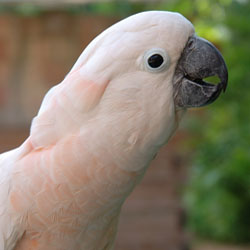 Our home is supposed to be our safe haven and this should hold true for our parrots too! The reality is that birds have to face many dangers in our "unnatural" environment. Hazards lurk around every corner of our homes and it is our responsibility to do room by room "safety inspections" and remove any and all hazards. Parrots don't have the requisite knowledge and experience to realize when they are putting themselves in harm's way. They are very adept at getting into danger due to the combination of their curious nature, mobility and powerful beaks.
Our home is supposed to be our safe haven and this should hold true for our parrots too! The reality is that birds have to face many dangers in our "unnatural" environment. Hazards lurk around every corner of our homes and it is our responsibility to do room by room "safety inspections" and remove any and all hazards. Parrots don't have the requisite knowledge and experience to realize when they are putting themselves in harm's way. They are very adept at getting into danger due to the combination of their curious nature, mobility and powerful beaks.
Most household related deaths are the result of either exposure to a toxic substance (via inhalation or ingestion) or due to a physical trauma.
Substances Posing Risk of Toxic Poisoning via Inhalation
Parrots are extremely sensitive to the quality of the air environment around us. Exposure to many pollutants and toxins can cause severe health problems, premature death and even an immediate fatality for your companion parrot.
A partial list of common household items that contain or generate toxic pollutants hazardous to birds follows:
- Household cleaners (kitchen, bathroom, furniture polish, fabric protectors)
- Teflon fumes (non-stick cookware, irons, self-cleaning ovens, etc.)
- Aerosols (cleaners, hairspray, deodorant, perfumes, etc.)
- Insecticides (bug bombs)
- Paint Fumes
- Tobacco Smoke
- Smoke from poorly ventilated woodstoves and fireplaces. Never burn wood that has been painted, varnished or chemically treated because the fumes may be highly toxic.
- Mothballs
- Garden chemicals (fertilizers, insecticides)
- New carpet fumes
- Scented candles, Incense, Potpourri
- Air Fresheners (aerosol & plug-in)
- Carbon Monoxide
- Adhesives
Toxic Poisoning Via Ingestion (by mouth)
Our birds love to chew and they love to explore the world with their beaks. If left unsupervised they can find many items around our homes that could be toxic if ingested.
- Food Safety
- Poisonous Plants
- Heavy metal poisoning from chewing on:
- objects containing lead (solder, old paint, lead weights, wine bottle foil, costume jewelry, pencils, leaded stained glass)
- galvanized metal (zinc)
- preserved wood products (arsenic)
- Human medications and supplements
- Spoiled food (mold, fungus)
- Unwashed fruits and vegetables (pesticides)
Physical Risks
Most physical accidents are the result of unclipped wings or simply a lack of supervision when your bird is out of its cage. Almost all of the tragic scenarios listed below would be avoidable through the exercise of good judgment and a little vigilance:
- Drowning in an open toilet, sink or fish tank
- Broken neck from flying into window, mirror or moving ceiling fan.
- Heat exposure in car
- Burns from stove, boiling water, wood stove or fireplace
- Other animals or small children - knocking over cage, playing rough, scratches, bites
- Suffocated in bed by owner
- Crushed by being stepped on
- Strangled in unkempt rope toy
- Poor environmental temperature control
- Escape through open window or door
- Killed by hawk or other predator
- Entrapment due to overgrown toenails or beak.
- Electrocution by chewing thru electrical cord.
The reader is encouraged to explore all the safety articles within the AvianEnrichment site as well as the abundance of helpful safety information available through other reliable sources.
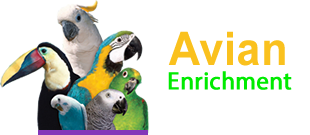














































































































































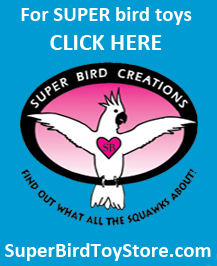
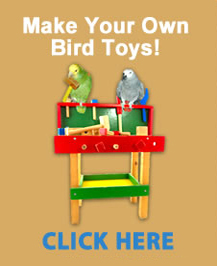
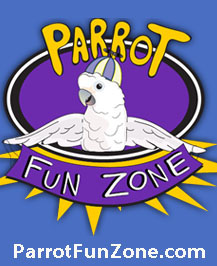

Comments powered by CComment